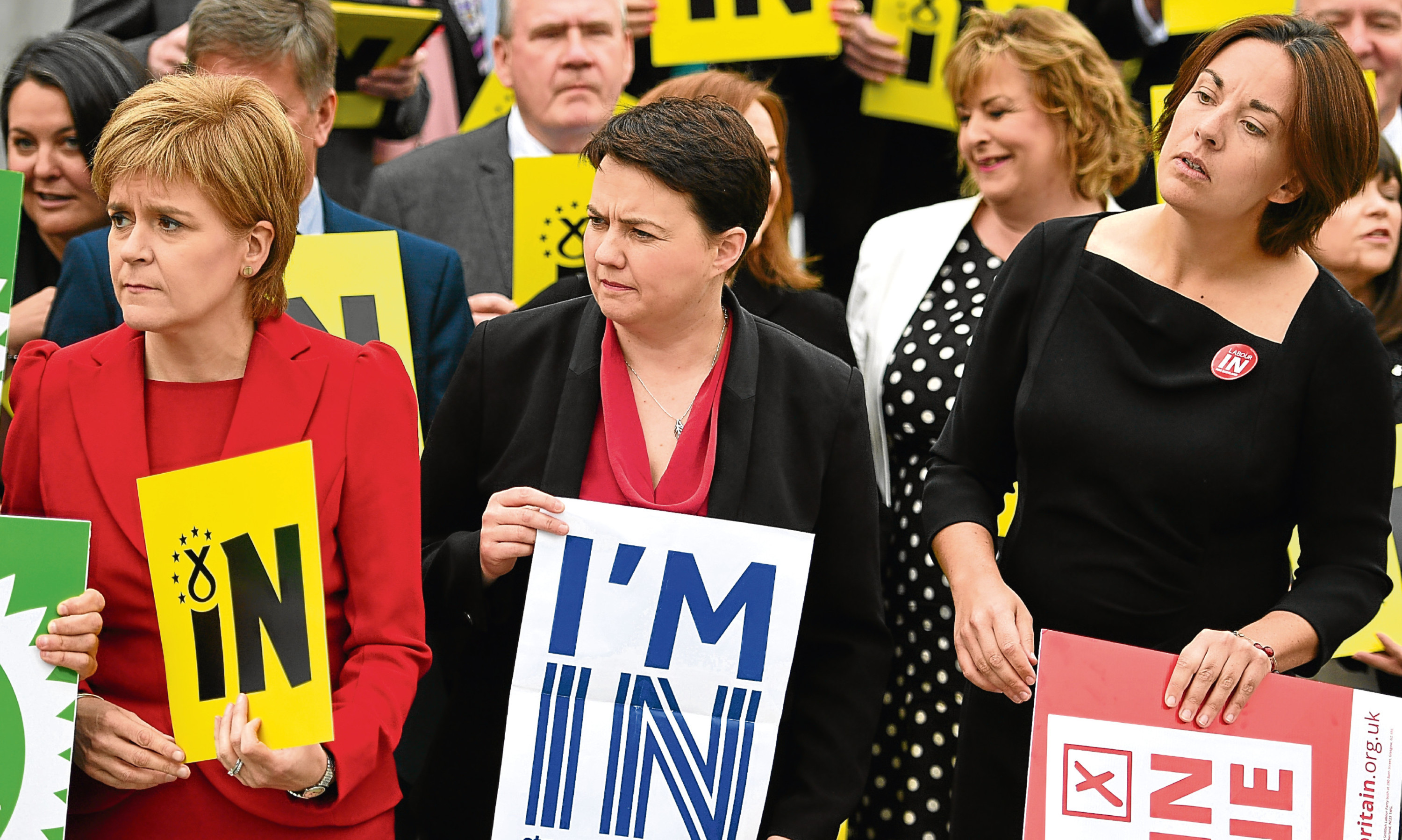The lesson of two referenda is – be honest with the question.
A bit of old-fashioned rigour and honesty is a much better antidote to people feeling alienated from politics than spinning sugar and lies.
Boris Johnson’s idea of voting to leave the EU is actually a nuanced form of renegotiation. It is unlikely this is what many Leave voters meant.
The anger contained in the Brexit majority will only become worse given the establishment car crash that is emerging as the “result”.
If we are to consider another referendum of our own, or some form of political consensus demanding special terms for Scotland in Brexit, we need to be clear what it is we want.
Our threat comes in three forms.
The first is leaving the EU against our will. That is grave – but it would be an error to forget the million Scots who voted to Leave. A quarter of the Scottish electorate backed Farage, Johnson or some whim of their own.
Boris threat
The second threat is Boris Johnson as Prime Minister leading a more right-wing Tory party.
That could have policy affects on Scotland – notably on welfare.
The third threat is to the Barnett Formula.
If Leave was an expression of English nationalism, then we should expect Scotland’s budget to be cut – it is seen by many down south as plain unfair.
Nicola Sturgeon has shown leadership – she has said a referendum is possible but put the needs of Scotland before knee-jerk constitutionalism.
She has appointed an expert panel to advise on Scotland’s options – it’s a good line-up.
Charles Grant of the Centre for European Reform is a very smart choice as he’s well-connected with EU thinkers.
To help in this venture, Scotland needs to come together. The message has to be consensus before constitution.
Only if Labour and Tories figures feel as welcome in the conversation as Alex Salmond will we make progress.
That means all sides must be prepared for compromise in the national interest.
Next, we have to focus.
There is not a groundswell for the SNP’s independence of 2014.
Instead, people want a clear plan which will lead to Scotland being in the EU.
If it comes to a vote, the question could be “Do you want Scotland to be an independent country in the European Union?”.
The 2014 question – Should Scotland be an independent country? – could be supported by people who were anti-EU – remember, those million who voted Leave included Scottish nationalists.
We are anxious about losing our EU membership – not newly-keen to plot a future yet to be defined.
Such a question brings clarity to the offer.
If we frame our future as not just leaving one union but joining another, it logically follows that some things are inevitable.
The most obvious of these predictable elements is that our currency would have to be the Euro.
Knowing this for sure ahead of time is an advantage – we could model this and have a pretty good idea of our wealth and what was available to spend on services.
Since Tory austerity kicked in, Scottish spending has experienced a £2 billion cut.
Given the state of Scottish spending at the moment (a high deficit) and the debt restrictions which come with Euro membership, we can predict the dent to our budget – purely for sake of illustration, we should expect something like a £6 billion cut per annum.
A lot of money, no doubt but less than the damage to the Republic of Ireland after 2008 and from which they have now recovered.
The £6 billion number is a guess – it might be less or more – but it’s important to accept that it will be of that order.
This should inform an honest white paper – written with the help of the new expert committee and the input of others.
It would prompt a sensible conversation about what needs to be done to spark growth in Scotland’s economy, which lags behind the rest of the UK.
Don’t forget, Scotland is about to get control of 50% of revenue raising and delivery of some welfare services (part of the post-2014 deal).
This means we can begin to shape the new nation now – tough and unpopular decisions will follow but people can support them if they know its part of a national programme aimed at our independence within the EU.
Again, Ireland coped with an economic battering and has come out with growth and jobs.
Not looking good
None of the options open to Scotland look good.
If we stick with the UK our budget is cut, welfare will be squeezed further and we lose access to the EU.
Independence in the EU means our budget is cut, spending will decrease but we possibly attract London banks to Edinburgh.
However, if we work to a common plan we look a lot more attractive to Brussels and will be far better negotiators with London.
This would all look better if the Scottish Tories were on side – what does it take to get Ruth Davidson to work with Nicola?
Strange times when that’s a serious question.
